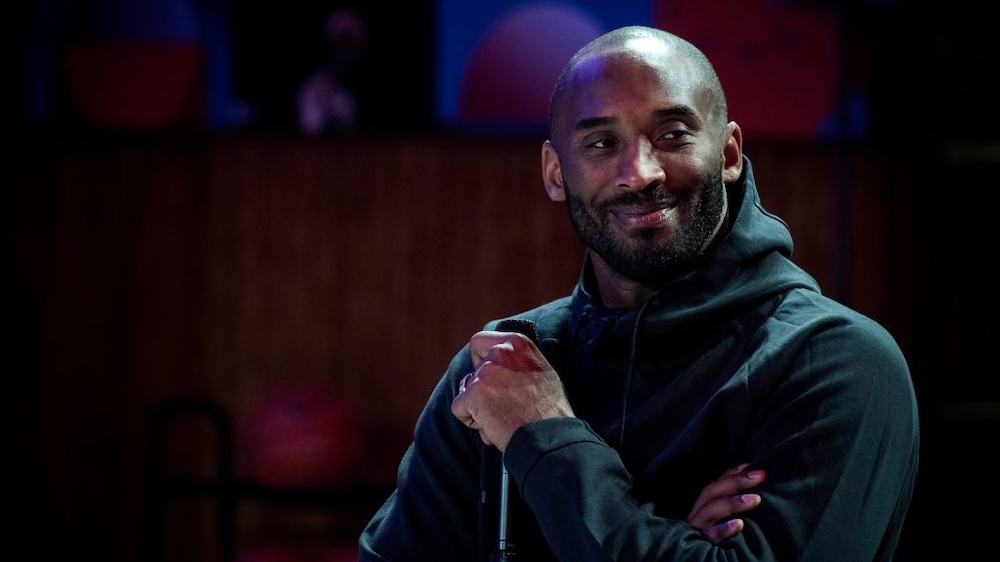If you’re interested in sharing your opinion on any cultural, political or personal topic, create an account here and check out our how-to post to learn more.
____
Few moments in recent memory will pose as much public metaphysical discourse on the state of Black men in America as the untimely death of Kobe Bryant. And yet, there it was, a burning spiritual sensation piercing through many souls like a bullet through flesh that Sunday. For me, that was in the most conspicuously tender and appropriate of places for an event of that scale: a barber’s chair.
As the therapeutic scrape of blade on edges was near finality, the sudden word of Bryant’s death pierced calm “Holy Day” air in Black man’s sanctuary. Brothers jumped out of chairs in a quirky “oh s**t” chorus; girlfriends, wives and others were sending incomprehensible texts about rumors floating on Facebook, which we reflexively dismissed roundly as “fake news.” But, once the shop gained focus through several minutes of “this s**t can’t be happening,” the mood fell from somber to heartbreak. What followed was a surreal scene of Black men, most not knowing each other, staging a funeral over someone none of us shared direct personal contact with.
Bryant was another Black man who, as an icon, defined who we are. And just like so many of us, he fell to a sudden and rather violent death too soon. We were all processing the moment, thinking of all things Kobe, for certain. Yet, beyond that crash in the Southern California hills, beyond the confirmation that his 13-year-old daughter was in that same wreckage, too, we all took a moment to take stock of ourselves.
Yes, as the slogan says, life comes at you fast. But for Black men, it hits us faster and with impeccably brutal precision. There is, of course, the reflection over the life, times and controversial legacy of Kobe Bryant — the late, Philly-area claimed and partly-bred phenom who represented a new disruptive Generation X standard of basketball excellence and, through a very destructive period of personal downfall and uncertainty, went into retirement to subsequently rise like a phoenix into a full-life chapter two. But, try as we may, we can’t escape the profound sense of grim loss for Black manhood.
Bryant, 41, unintentionally personified the trials, struggles and triumphs of Black men, rinse, wash and repeat. Hence, the quiet stares of disbelief in that barbershop. Despite his fame and wealth, brothers identified with his force-of-nature battlefield technique on a court, symbolizing merciless ebbs and flow of life. It's a flow punching us in ways different from everyone else. So, as we watched him grow through his personal ups and downs, we grew with him. This is because Black men, like that helicopter swerving in distress, are in a state of perpetual crisis, from things unexplained, tragedy systematically designed and bad judgements self-inflicted.
These days, it’s easy to lose ourselves in open “End of Black Man” obituaries. Yet, to witness through headlines, the reinvention Kobe meticulously re-engineered offered a hopeful model and mantra. His life offered a soundtrack of inches forward and beat-sliced samples of redemption. He was in pursuit of perfection, and he did that to arrive at some form or degree of measurable social impact — when no one was looking or asking for the extra. An essential tutorial on the Black man’s misfortune, searching through the callous maze of what was thrown at him, in the end he strove towards an ideal of a better husband, a good father and a stronger steward of his community. The possibilities were endless, and now he’s gone at a time when we need so much more of that.
Still, that doesn’t mean we stop. We emulate the Kobe system: we persist in endless foot-forward offense and respond with unflinching jabs of attack against the counter play. We continue to be Black men putting points on our board. We score till we reach the other end of the court victorious, and we keep our loved ones close along the way.
____
Charles D. Ellison is an award-winning thought leader, political strategist, commentator and advocacy expert with nearly two decades of applied expertise in the arena of politics, public policy, campaigns and elections, crisis management and emerging/digital media strategy. (via wurdradio.com)
